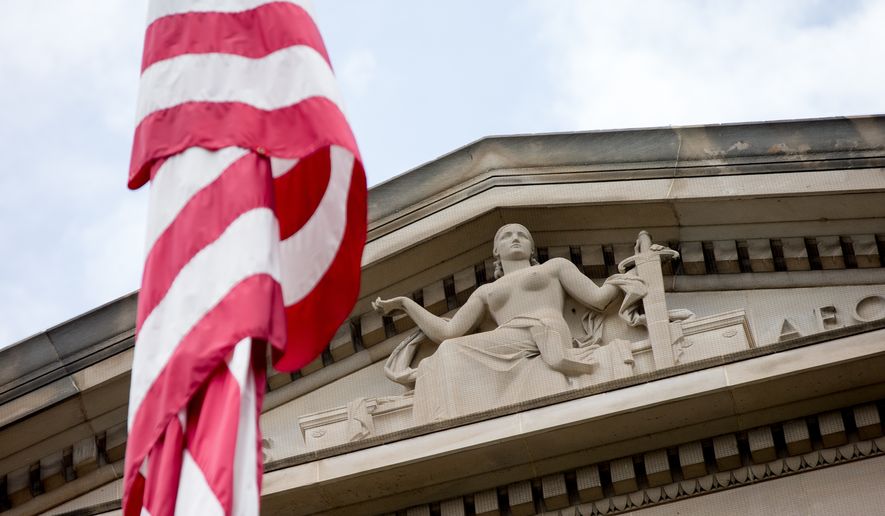The Department of Justice on Tuesday announced 15 indictments against members of one of the largest and most dangerous drug gangs operating in Mexico.
The indictments are part of an overall effort by the Trump administration to crack down on the Cartel Jalisco Generation (CJNG), which it says is bringing five tons of cocaine and five tons of methamphetamine into the United States every month.
Officials say the cartel has influence in 75 percent of Mexican states and is expanding operations into the United States, Europe, Asia and Australia.
“Every day, these cartels are taking advantage of our porous southern border to move and push their illegal drugs for large profits — expanding suffering and death along the way,” Attorney General Jeff Sessions said announcing the indictments. “Very few of the illicit drugs that are killing Americans are made in the United States.”
Mr. Sessions said the large amount of drugs coming into the country through Mexico emphasizes the need to build a border war that was among President Trump’s most ardent campaign promises.
“The vast majority [of drugs] were brought here across our southern border,” he said. “This is indisputable. Every day we go without a secure border — and without a wall — is another day that we vulnerable.”
“To build the wall, we need Congress to act,” Mr. Sessions said. “To close the loopholes, we need Congress to act.”
The announcement comes one day after Mr. Sessions named CJGN one of the top five transnational criminal organizations, creating a subcommittee to recommend ways to dismantle the cartel.
In the addition to the indictments, the Department of State increased its reward for information leading to the arrest of CJNG head Nemesio Oseguera Cervantes, making him one of the most wanted drug lords in the United States.
The State Department is offering $10 million for information leading to the arrest of critical CJNG operatives, including Mr. Cervantes and his son, second-in-command Ruben Oseguera Gonzalez. Previously, the State Department had offered up top $5 million for tips through its Narcotics Rewards Program.
Since 2015, the the Treasury Department’s Office of Foreign Assets Control has announced nine designation actions against 63 separate individuals and entities tied to CJNG, including restaurants and a boutique hotel.
OFAC Director Andrea Gacki, said CJNG is among the the most aggressive and targeted organizations in its history.
“Our goal is to disrupt the cartels’ finances, which are overwhelmingly generated from drug sales that occur in the United States, and deny them access to the U.S. financial system,” Ms. Gacki said.
The indictments, five of which were unsealed in September, are spread across the United States. Charges were filed in California, Illinois, Mississippi and Virginia. Some of the indictments, however, date back as far as 2014.
Some of the cartel operatives have been arrested by Mexican authors, while others remain at large. Mr. Sessions said extradition often gets delayed because defendants in Mexico have a vast number of appeals they can file to oppose deportation.
The Justice Department was able to work with Mexican to extradite the notorious drug lord Joaquin Guzman, better known as El Chapo. Mr. Sessions said he is hopeful for similar cooperation in the CJNG cases.
“We’ll need that kind of cooperation,” he said. “The idea of extradition becomes meaningless if it can never be effectuated.”
• Jeff Mordock can be reached at jmordock@washingtontimes.com.




Please read our comment policy before commenting.